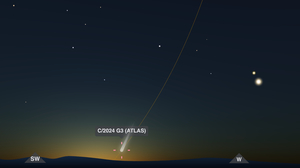
Best Comet of 2025?
C/2024 G3 (ATLAS) has already become very faintly visible to the naked eye for observers in the Southern Hemisphere.
During Ramadan, also called Ramadhan or Ramzan, Muslims in the UK and around the world celebrate the revelation of the Quran (Koran).
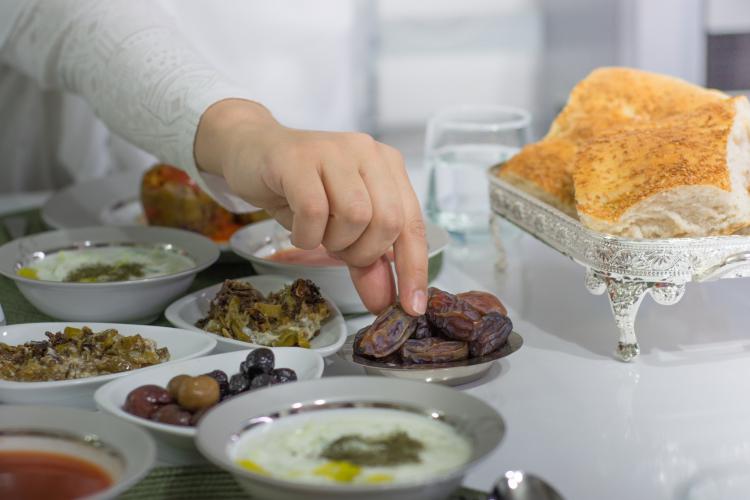
The Ramadan evening meal (iftar) often includes dates.
©iStockphoto.com/ilkaydede
Ramadan is the ninth month of the Islamic calendar, and the Ramadan celebrations begin on Ramadan 1 each year.
Muslims use a lunar calendar which differs in length from the Gregorian calendar used worldwide. This means the Gregorian date of Muslim holidays shifts slightly from one year to the next, falling about 11 days earlier each year.
The timing of Muslim months and holidays generally depends on the sighting of the Moon's crescent following New Moon. Because the Moon's visibility depends on clear skies and several other factors, we cannot predict the exact date of Muslim holidays with certainty.
Also, since the Moon is never visible in all world regions at once and current local dates can vary from one country to another, a holiday may fall on different dates according to a country's longitude and time zone. So, some Muslims may celebrate a holiday one day earlier than others, depending on their country or region of origin.
While the beginning of Ramadan carries great significance for Muslims, there are no bank holidays associated with this particular date in the United Kingdom. However, since the Gregorian date of Muslim holidays changes every year, the first day of Ramadan can fall on other UK bank holidays.
Islamic businesses and organizations may amend opening hours to suit prayer times during Ramadan. There may also be some congestion around mosques, such as the London Central Mosque in Regent’s Park, especially in the evenings.
Muslims around the world, including in the United Kingdom, celebrate Ramadan by fasting during daylight hours, praying, reciting the Quran, and by giving to charity. The traditions associated with Ramadan are most visible in the country's many mosques and in predominantly Muslim neighborhoods, such as Edgware Road in London.
Political leaders in the United Kingdom, including the prime minister, may make public announcements on the first day of Ramadan to greet Muslims both locally and globally and to raise the general public's awareness of the holiday's importance among Muslims.
The Ramadan fast (sawm) is one of the Five Pillars, fundamental religious duties of Islam, so most Muslims in the UK abstain from eating and drinking during daylight hours. It is common to have one meal (suhoor) just before sunrise and an evening meal (iftar) after sunset.
Sunrise and sunset times in your city
Designed to increase self-awareness and facilitate deeper religious devotion, the Ramadan fast can be challenging in countries like the United Kingdom, where days can last for up to 16 or 17 hours during the summer months. To help people avoid health complications when they fast, the United Kingdom’s Department of Health produced a guide to healthy fasting during Ramadan.
Ramadan is also a time for Muslims to donate to charity or contribute to the community by participating in food drives for the poor, organizing a collection or charity event, and other voluntary activities. This practice is called Zakat.
Muslims are encouraged to read the entire Quran during Ramadan. In mosques around the UK, Taraweeh, special night prayers, are held every day after sundown. Ramadan Qu’ran competitions may be held for both children and adults.
It is common to exchange Ramadan greetings during the holy month. The most common greetings are Ramadan Kareem, which is used to wish the recipient a generous Ramadan, and Ramadan Mubarak, which means “Happy Ramadan” or “Blessed Ramadan.”
During Ramadan, Muslims in the UK and around the world celebrate the Quran, which is why it is also often called the month of the Quran. According to the Muslim faith, the first verses of the Quran were revealed to the Prophet Muhammad during the last third of Ramadan.
It is also believed that the gates of Heaven are open and the gates of Hell are closed during Ramadan, creating perfect conditions for charitable deeds and religious immersion.
The Ramadan celebration culminates on Laylat Al-Qadr on Ramadan 27. According to most Muslim denominations, this is the date when the Quran was actually revealed.
Eid-al-Fitr on the first day of Shawwal, the 10th month of the Islamic calendar, marks the end of Ramadan.
With nearly 2.8 million Muslims living in the United Kingdom, which equals about 4.8% of the population, Islam constitutes the second largest religion in the country, after Christianity. The largest Muslim community can be found in London. The municipalities of Bradford, Luton, Blackburn, Birmingham, and Dewsbury also have significant Muslim populations.
Note: Regional customs or Moon sightings may cause a variation of the date for Islamic holidays, which begin at sundown the day before the date specified for the holiday. The Islamic calendar is lunar and the days begin at sunset, so there may be one-day error depending on when the Crescent Moon is first seen.
| Year | Weekday | Date | Name | Holiday Type |
|---|---|---|---|---|
| 2020 | 木曜日 | 4月23日 (木) | Ramadan Start | Muslim |
| 2021 | 火曜日 | 4月13日 (火) | Ramadan Start | Muslim |
| 2022 | 日曜日 | 4月3日 (日) | Ramadan Start | Muslim |
| 2023 | 木曜日 | 3月23日 (木) | Ramadan Start | Muslim |
| 2024 | 月曜日 | 3月11日 (月) | Ramadan Start | Muslim |
| 2025 | 土曜日 | 3月1日 (土) | Ramadan Start (Tentative Date) | Muslim |
| 2026 | 水曜日 | 2月18日 (水) | Ramadan Start (Tentative Date) | Muslim |
| 2027 | 月曜日 | 2月8日 (月) | Ramadan Start (Tentative Date) | Muslim |
| 2028 | 金曜日 | 1月28日 (金) | Ramadan Start (Tentative Date) | Muslim |
| 2029 | 火曜日 | 1月16日 (火) | Ramadan Start (Tentative Date) | Muslim |
| 2030 | 日曜日 | 1月6日 (日) | Ramadan Start (Tentative Date) | Muslim |
| 2030 | 木曜日 | 12月26日 (木) | Ramadan Start | Muslim |
While we diligently research and update our holiday dates, some of the information in the table above may be preliminary. If you find an error, please let us know.

C/2024 G3 (ATLAS) has already become very faintly visible to the naked eye for observers in the Southern Hemisphere.
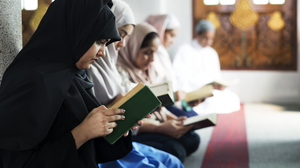
Laylatul Qadr, the Night of Power, is the holiest day of the Islamic calendar year.
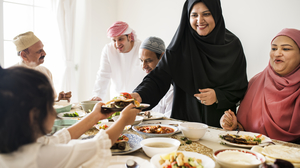
Eid ul-Fitr is a Muslim celebration that marks the end of the month-long fast of Ramadan.
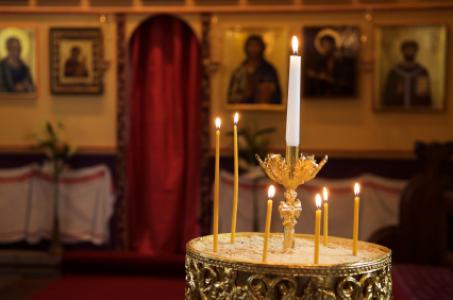
Orthodox Christians in the United Kingdom mark the start of a new calendar year on either January 1 or 14 in the Gregorian calendar.